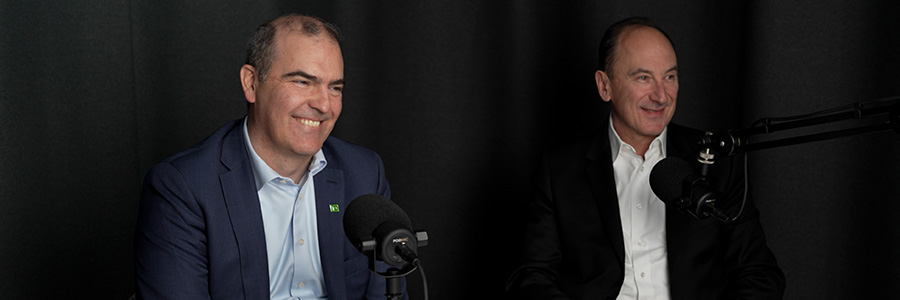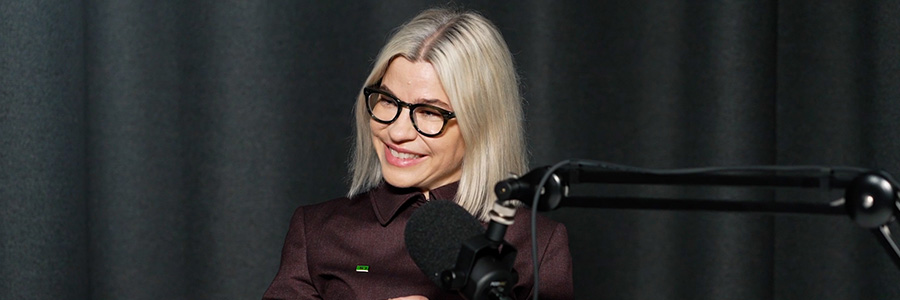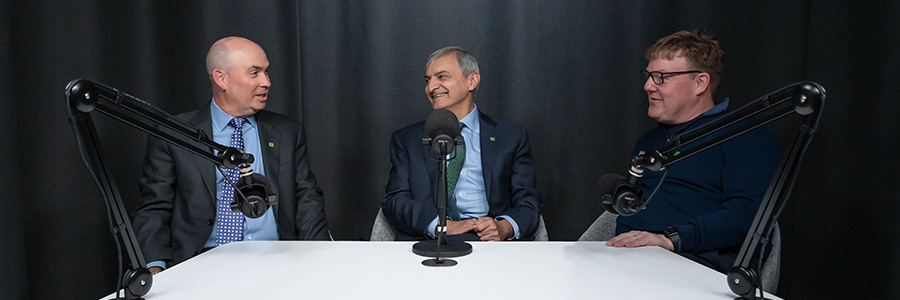Guests: Andrew Green, Managing Director and Head of Base Metals, TD Securities
Host: Amy Van Arnhem, Managing Director and Head of Canada Senior Relationship Management, TD Securities
Listen as Andrew Green sits down with host, Amy Van Arnhem to discuss how the team saw an opportunity for growth and blazed a path to become the industry's leading Base Metals House for over three consecutive years. As the world gears up for net zero, discover why the sector plays a critical role in enabling energy transition.
Listen to additional episodes for more perspectives from a variety of thought leaders on key themes influencing markets, industries and the global economy today.
This podcast was originally recorded on July 5, 2023.
ANNOUNCER: Welcome to Viewpoint, a TD Securities podcast. Listen in as we draw perspectives from a variety of thought leaders on key themes influencing markets, industries, and the global economy today. We hope you enjoy this episode.
AMY VAN ARNHEM: Hello and welcome to episode 21 of Viewpoint, a TD Securities podcast. My name is Amy Van Arnhem and I will be your host for today's episode, I'm joined by my colleague Andrew Green, who is head of base metals in our commodities business at TD Securities. Andrew's been in the base metals space since 2001, joining TD Securities in 2017. Andrew, thank you so much for joining me today.
ANDREW GREEN: Well, thanks for having me on.
AMY VAN ARNHEM: So I look forward to learning more about the business that we have at TD Securities, and specifically around the base metals side, which is your focus. So maybe to start off, it would be great to hear more about the journey of how TD Securities established our commodities business, and then a little bit more specifically on the base metals side.
ANDREW GREEN: Yeah, sure, I'll take it back to before my time, actually. Back in 2010, TD started the precious metals desk with a team that moved over from Mitsui. They were basically one of the leading franchise businesses at the time. And they said to TD, look, there's a great opportunity for you guys to be involved in this space. And so they moved across. And slowly, they built up the business to become, as I said, one of the leading franchise banks on the Street within precious metals.
And the base metals business was really a natural evolution from there. Because typically, on the producer side, some of the producers that produce gold and silver will have byproduct hedging in base metals to do. It was really a very timely period to be growing actively in that space because a number of European banks were downsizing at the same time, which led to the opportunity to hire some good talent from the rest of the Street. And also just by being able to be there for clients when other banks were downsizing, looking for new banking partners, looking to innovate trades.
So the base business grew kind of organically from let's call it 2011-12. And then in 2017, TD realized that it had to really become a member of the LME exchange in order to facilitate transitory inventory financing, which is a key requirement for our customers. And it's also a product that we can offer quite aggressively due to the nature of TD's balance sheet.
And from there, I joined in 2017, around about the same time. And from there, we've kind of grown into a top-tier franchise in the base metals world. And in 2019, we were voted number one base metals house by Energy Risk Magazine. And we've actually won it now three years in a row.
AMY VAN ARNHEM: Great.
ANDREW GREEN: Yeah, which is-- for a relatively new business in the commodities space, it's quite an achievement, I think.
AMY VAN ARNHEM: Well, that's great. And I mean, it really brings me to the next question, which is really about the client. So what type of clients are we servicing? And what are the activities and solutions we provide for those clients? And I guess what sort of warranted us to win that award in itself in terms of the expertise that we bring to our clients?
ANDREW GREEN: The first client segment is, obviously, the franchise clients at the bank. I think that's where every business would start. And most notably, those tend to be in the consumer sector. So we help consumers, household names hedge their exposure to the underlying. So say you're a car maker. You need to have access to aluminum prices, or aluminium as you say in this time zone, to hedge future exposures that you might have to lock in certain price and cost availabilities.
You may also look at sourcing material in a certain location. Certain consumers look at that as well. And then we have, of course, the other side of that trade, which tends to be the producers. Now, I mentioned earlier there's the byproduct hedging that certain metals experience, just a relatively efficient way of obtaining hedges on metal you produce.
But also if you've got, say, a high-cost mine that's being developed, or you're a company that is very much in the beginning stages of production, you might seek some producer hedges if the prices are attractive at current levels. And so the consumer and producers are two of the more historical clients of many commodity desks.
I think where TD has kind of excelled itself in recent years has been trading with some of what we would call the kind of global commodity traders, where they come to TD as a trusted counterparty to source material in certain locations. And also very much the lifeblood of their business is to require financing of inventory positions.
By their very nature, obviously, they have metal moving around the world and other commodities moving around the world. So they do require financing of those products when they're in those kind of trades. And so that's where we've been able to offer various different sourcing offerings, financing offerings, and liquidity swaps in the underlying metals.
One thing our customers really do value is a very efficient process. And that goes back to front, right from the trade execution to the confirmation to the settlement of the transactions. And we've certainly been successful in growing a very efficient operations team that has provided that level of service. And our customers are very appreciative of that. And again, you can see that in terms of the awards we in and the market share we've been able to obtain in a relatively short period of time.
We won number one base metals house the last three years running. And I think a lot of that is down to the service level we provide our clients. So we have a very dedicated team that is commodities focused. We don't operate with a generalist sales force or a generalist trading force. We don't have any online platforms. We do voice to voice.
And our operations team is located in London as well. And they're all very experienced individuals. And I think a lot of that service level that we provide our customers, both in terms of accurate pricing, very timely pricing, and also the operations efficiency and timeliness in terms of confirmations and any questions or queries are answered, I think the kind of back-to-front service top-tier has kind of resulted in a fairly rapid ascent to an award-winning platform that TD has.
As we grow and as we add new products, we're very wary of the fact we want that service level, that high service level to continue. And so we will always include our operations partners in any new product we develop at that kind of scheduling stage just to ensure that they can adequately cover the new products or the new service we are offering.
And I think that's a very important part. A lot of desks when they're growing, not just within commodities, they just focus on adding customers. But we're very much focused on providing the whole service from our desk.
AMY VAN ARNHEM: Oh, that's great. I mean, it is very important, I think, from an end-to-end perspective to ensure that you're connecting and servicing clients. So maybe you could spend a little bit of time just talking on some of the areas of growth for our business and if there's any areas we aspire to be more involved in the future.
ANDREW GREEN: Yeah, I think the natural evolution of our business is to move into expanding the product offering. I think with the-- I mentioned earlier, some of the banks retracing in the space. And so as it stands right now, in a kind of competitive environment, there aren't very many-- in fact, I don't think there are actually any who will be able to offer the kind of one-stop shop model.
And from that, I mean, the concept of being able to hedge derivatives, being able to source material in certain locations, being able to finance that material, and being able to ship that material to its final destination. That is our aim, really, is to become that one-stop shop model. We are very close.
The next one we have to add in is the finance in transit. And that, I think, will place us very much in the kind of top-tier offerings within the metal space. There's a lot of press around the energy transition metals at the moment. So, of course, copper and nickel and even aluminium in terms of the future of EVs and reduction in carbon are very much top of people's radars.
However, we do also look to-- we also will be looking to add in metals such as lithium and cobalt, really, depending on our customers' demands. And that's where we do listen to our customers actively and resource-- and we'll place resources towards those products where we have customer inquiries and customer demands.
Another logical step would be to focus on institutional clients. I think TD's balance sheet and its ratings are such that from an institutional perspective, we are a very attractive counterpart. And if I look back say, 10, 15 years ago, I think institutions were happy to place all activity with one or two banks. I think that environment has changed now.
And so TD would be well placed to be very active in that space. Now, whether that be index offerings, or physical storage of material, or just simple more DMA market access, or clearing, I think TD is very well placed to grow in that area.
AMY VAN ARNHEM: Well, it sounds exciting. It sounds like there's lots of opportunity for us to continue to grow the product suite. So that's great. One thing that's always struck me about the commodities and metals space, in particular, is just the volatility that you do see. And I'm just wondering if you could speak a little bit to how your clients manage through that, and also how it impacts the decisions you make in terms of how you run the business?
ANDREW GREEN: Yeah, I think volatility certainly-- a lot of people would point at just certain underlyings. But really, it's affected all commodities over the years. It wasn't so long ago-- I think it was April 2020, I think oil front month went negative during the delivery period. And then most recently in metals, we saw nickel go through a market disruption event.
We saw, obviously, nickel prices move fourfold in a very short space of time to the point where the exchange had to halt the market due to disorderly trading conditions. I think it was a very good experience to work through and to manage through with clients, just to ensure that we had accurate position reporting. We provided transparency to our clients.
Happy to report, we obviously didn't have any incidents on the TD side. And I thinK-- looking medium to longer term, I think those sorts of incidents do help to make the market more efficient by the introduction of price caps and also the greater transparency that the exchange will be requiring in terms of OTC positions.
Because prior to that, it really only had access to its listed members and to what their positions were. It had no visibility on the OTC market. And clearly, some positions there were very, very large. So yeah, I think it's a positive result from that disruption event. And I think we all learned from all experiences.
AMY VAN ARNHEM: Yeah, absolutely. When you see periods of volatility like that, it's a good opportunity to look at how things are being run and figuring out the best way forward. So that will be very exciting to watch as well. And hopefully, there's not too many more that are quite as disruptive.
But just in terms of maybe a little bit more on that, what are some of the key factors that are sort of keeping industry players up at night right now? Are there any sort of key themes or considerations for the next couple of years? I mean, you mentioned the energy transition, and as well as some of the enhancements to the trading systems right now. Is there anything else you would mention or speak to?
ANDREW GREEN: I think the key theme really is energy transition within the metal space. There's a lot of metals that are required to build wind farms, solar farms, EV cars that aren't required in traditional methods. So I'll give you a couple of examples. So if you take a wind turbine that you see when you're driving along the road, even just one wind turbine would require over four tons of copper--
AMY VAN ARNHEM: Wow.
ANDREW GREEN: --and three tons of aluminium. And the majority of the copper there is coming from the cable and the wiring to get the output from that wind turbine. But you could just imagine what that looks like. And so you can imagine how many wind turbines and wind farms are being scheduled or being desired, anyway. And so if you look at like a kind of solar power system as well, typically, they would contain over five tons of copper.
So there's just a huge demand for these metals going forward if we're going to meet these targets that our governments and organizations wish to. There was actually a report out from McKinsey talking about recommending investments in mining, refining, and smelting to increase to somewhere in the region of $3 to $4 trillion by 2030, which is over 50% compared with the previous decade. So that just gives you a kind of idea as to the scale of the projects we're talking about here.
And bear in mind, getting these metals out of the ground is not an easy task, typically. And they're produced in very difficult locations. If I talk about aluminium, for example, 40% of the production costs are typically energy. Energy markets have been tricky over the last few years, particularly in Europe.
And yeah, so I think the energy transition is going to be key for the metals markets going forward. Given the world has a number of other areas to focus on in terms of funding, getting the metals out of the ground and the expansion of the energy transition metal production is a key factor there.
AMY VAN ARNHEM: It's definitely going to require some pretty significant investments. This has been great. And it's been great to learn a little bit more about our business, and specifically, some of the areas we're looking to grow. Well, thank you so much for joining me today, Andrew. I appreciate it.
ANDREW GREEN: Thank you very much.
ANNOUNCER: Thank you for listening to Viewpoint, a TD Securities podcast. If you enjoyed this episode, subscribe to this series on Apple Podcasts or on your favorite podcast platform. For more thought leadership content, visit tdsecurities.com and follow us on LinkedIn for all the latest TD Securities updates. For relevant disclaimers to this podcast, please refer to the Viewpoint episode page on our website.
This podcast should not be copied, distributed, published or reproduced, in whole or in part. The information contained in this recording was obtained from publicly available sources, has not been independently verified by TD Securities, may not be current, and TD Securities has no obligation to provide any updates or changes. All price references and market forecasts are as of the date of recording. The views and opinions expressed in this podcast are not necessarily those of TD Securities and may differ from the views and opinions of other departments or divisions of TD Securities and its affiliates. TD Securities is not providing any financial, economic, legal, accounting, or tax advice or recommendations in this podcast. The information contained in this podcast does not constitute investment advice or an offer to buy or sell securities or any other product and should not be relied upon to evaluate any potential transaction. Neither TD Securities nor any of its affiliates makes any representation or warranty, express or implied, as to the accuracy or completeness of the statements or any information contained in this podcast and any liability therefore (including in respect of direct, indirect or consequential loss or damage) is expressly disclaimed.
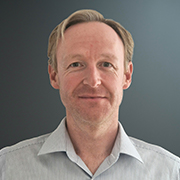
Andrew Green
Managing Director and Head of Base Metals, TD Securities

Andrew Green
Managing Director and Head of Base Metals, TD Securities

Andrew Green
Managing Director and Head of Base Metals, TD Securities
Andrew joined TD Securities in 2017 and is responsible for building out the base metals franchise alongside the growing precious metals business. Prior to his role, Andrew has been involved in the commodities space since 2006, when he joined UBS Investment Bank. Following that, he became Head of Trading at Société Générale, a leading customer franchise in metals before moving into his current role. As of 2020, the Base Metals desk has consistently and continues to be ranked #1 in base metals by the Energy Risk Commodity Rankings.
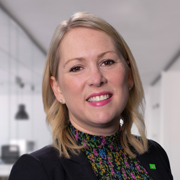
Amy Van Arnhem
Managing Director and Head of Canada Senior Relationship Management, TD Securities
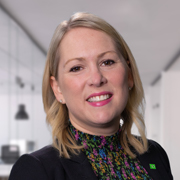
Amy Van Arnhem
Managing Director and Head of Canada Senior Relationship Management, TD Securities

Amy Van Arnhem
Managing Director and Head of Canada Senior Relationship Management, TD Securities
Amy is responsible for providing holistic cross product global coverage to senior executives for Canadian institutional clients. In her role she manages stakeholder relationships by promoting a collaborative and integrated approach across the firm. Joining our firm in 2001, Amy began her career at TD in the retail sector. In 2007, she joined the Sales and Trading rotational program at TD Securities where she gained exposure in Asset Securitization, Proprietary Equity, and Institutional Equities. In 2008, she joined the Institutional Equity Sales desk team where she covered Canadian equity clients.





